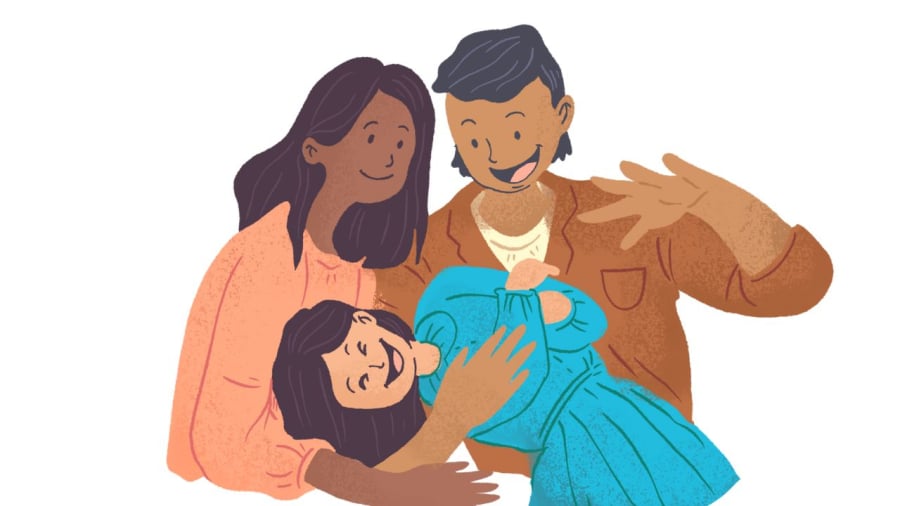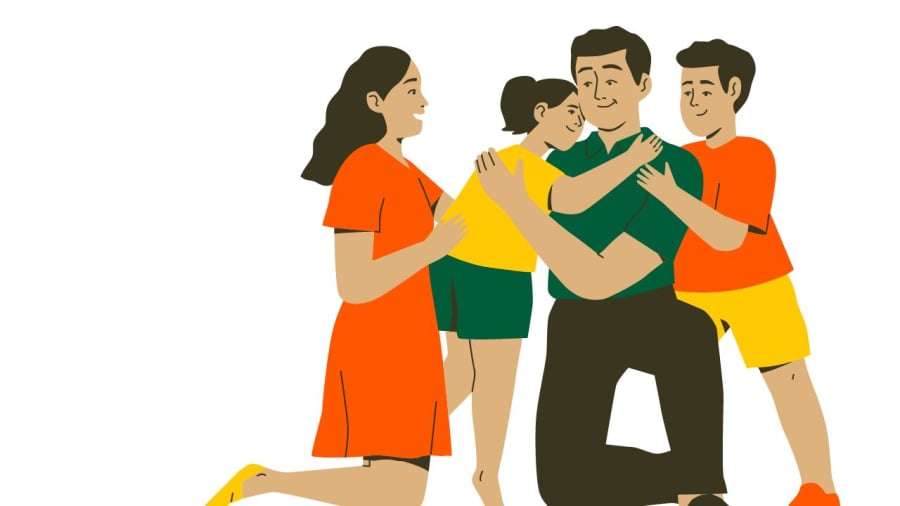Hugs are a powerful form of physical affection that foster intimate connections between parents and their children. They serve as a conduit for transferring energy and parental love, offering comfort and encouragement that words often fail to provide. The impact of a hug is especially profound for children, creating a sense of security and warmth.
The following paragraphs delve into the significance of hugs and their positive impact on a child’s well-being:
Hugs are a powerful form of physical touch that fosters intimate connections between parents and their children. Through hugs, energy is transferred from parent to child, and parental love is conveyed. Hugs create a magical sense of comfort and encouragement, offering solace that surpasses a thousand words. This intimate gesture holds even greater importance for children.
The younger the child, the greater their need for hugs as they seek reassurance and protection. Studies have shown that skin-to-skin contact between parents and newborns, also known as “kangaroo care,” can be life-saving, promoting better health and well-being. Hugs provide children with a sense of comfort, enveloping them in a loving embrace. Infants, in particular, yearn for this physical closeness.

Parental Hugs Bring Joy and Reassurance
The Value of Hugs:
1. Boosts Brain Development and Enhances Intelligence
Within the embrace of their parents, children find solace and experience an increase in the release of the hormone oxytocin. This hormone is associated with social bonding and has a calming effect. As oxytocin levels rise, children relax and their stress levels diminish, leading to improved brain development and a reduction in irritability and crying. Additionally, oxytocin plays a crucial role in regulating body temperature, ensuring optimal cardiovascular and respiratory function, all of which contribute to a child’s overall well-being.
2. Provides a Sense of Security and Comfort
A parent’s hug transmits a powerful message of love and support, offering solace and reassurance. This is especially important when a child is crying, tired, or experiencing fear. Hugs have a calming effect, helping children to regain composure and resilience in the face of psychological stress. Regular hugs from parents contribute to a child’s sense of security, reducing anxiety and instilling a sense of peace. This positive emotional foundation sets the stage for healthy physical and cognitive development, fostering a joyful and focused approach to learning and exploration, thus enhancing their intelligence.

Hugs Offer Encouragement and Motivation
3. Enhances Children’s Immune System
Regular hugs contribute to a child’s overall emotional well-being by reducing negative emotions and boosting their immune system. Just as stress and fatigue affect adults, children also experience stress relative to their age. Hugs serve as a healthy outlet for children to release these negative emotions. The physical closeness and comfort provided by parental hugs strengthen a child’s resilience, promoting overall health and disease resistance.
4. Improves Parent-Child Relationship
Hugs are a tangible expression of love, encouragement, protection, and support. By embracing their children frequently, parents create a deeper connection and foster a sense of security. Children yearn for this physical closeness and feel loved and valued through these warm embraces.
Golden Moments for Hugs
Parents are encouraged to embrace their children as often as possible, especially during the following key moments:
1. Morning Awakening
Upon waking up, children may feel disoriented and prone to crying. A morning hug and kiss from parents can provide a sense of security and alleviate any fears. This simple gesture is like a warm embrace to start the day, setting a positive tone for the hours ahead.
2. After Work/School
At the end of the day, when parents return from work or pick up their children from school, a warm embrace before getting into the car or entering the house can be comforting. After a long day apart, children long for this physical connection, and it helps to soothe any anxiety or impatience they may have felt during the separation.
3. Bedtime
A hug before bedtime serves as a source of encouragement and reassurance, promoting a sense of safety and comfort. This simple act can help children fall asleep more peacefully and securely, so be sure to embrace them tightly before they drift off to sleep.
4. During Goodbyes
When parents and children need to part ways for a period, whether it’s due to travel or other circumstances, a hug can help ease the anxiety associated with separation. This physical connection provides a sense of comfort and reassures the child that they are loved and supported even during times of physical distance.
5. Special Occasions
Children go through various stages of development and may experience emotional ups and downs, fears, or times when they need extra support. During these pivotal moments, a parent’s hug becomes even more significant. Don’t hold back on offering a comforting embrace to your child when they need it most.
Hugs are a simple yet profound act of love that carries a wealth of benefits. While they may seem insignificant, the impact of a hug can last a lifetime. The hugs we give our children today shape their future, fostering a sense of security and happiness. So, embrace your children often, for these moments of physical connection nurture their emotional well-being and lay the foundation for their future success and fulfillment.
“The Two Golden Rules of Parenting: “A Mother’s Three Steps Back, A Father’s Two Steps Forward””
Raising a child is an art form that requires an array of skills and strategies to succeed. The time and effort invested by parents are immeasurable, and the rewards are often profound and life-changing. It takes a village to raise a child, and with the right tools and knowledge, parents can master the art of parenting and shape their children’s future.
The Ancient’s Wisdom: 3 Keys to Raising Successful and Virtuous Children
As a parent, it is imperative to lead by example by first eliminating any bad habits. Do not underestimate the awareness of children, as the old adage goes, “start teaching your children good morals from a young age”. This is indeed the best time for parents to educate their children to become virtuous and respectful individuals.





































